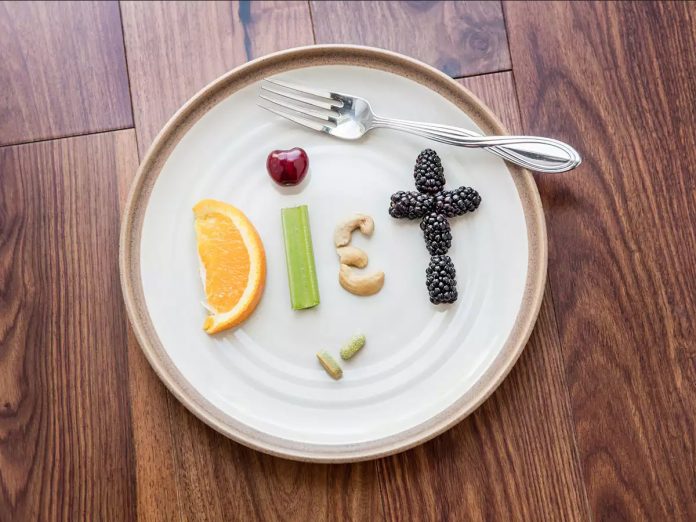If you’re trying to lose weight, it’s easy to be tempted by diets that promise weight loss fast. While some diets are obviously gimmicky and not worth your time, the promise of a low-fat or low-carb diet sparking weight loss is intriguing and actually pretty legit. Both eating philosophies have been around for a while, and you’ve probably met people who have tried one or the other and lost weight.
But when it comes to choosing what’s best for you, it’s more than just choosing one macronutrient to cut back on for a month or two. Following both a low-fat and low-carb diet can definitely result in weight loss—whether or not they’re the healthiest, most sustainable weight-loss methods is another story.
Also, important disclaimer before we move forward at all: And if you have a history of disordered eating, cutting out entire food groups is something you should discuss with your doctor beforehand. Actually, even if you don’t have a history of disordered eating, it’s a good idea to consult a medical or nutrition expert before radically changing your diet in this way. If you’re interested in losing weight, it’s important to recognize that diets alone are not sustainable in the long-run, and that the process is long and takes a lot of work on a lot of levels. Beyond focusing on your nutrition intake, you also need to make sure you’re getting good, consistent, quality sleep, and minimizing your stress. And in addition to that, it’s important to keep your expectations reasonable and focus on changes that are healthy, not harmful. Not all weight-loss goals are realistic or achievable; and even if they are, they may not be worth it in light of what single-mindedly focusing on weight loss can do to your mental health. The bottom line with weight loss is that it’s deeply personal, it’s different for everyone, and there’s no magic bullet or quick fix. The most important thing is to be respectful of your body and mind and be kind to yourself.
In the short term, either method will help you drop pounds.
Cutting calories, no matter if they’re coming from fat or carbs, reduces your overall energy intake and will help you lose weight. “From a straight weight loss perspective, it doesn’t make a difference,” Gary Foster, Ph.D., chief scientific officer at Weight Watchers International, psychologist, obesity investigator, and behavior change expert, tells SELF. You may lose more upfront cutting carbs—they hold onto water so the water weight will come off quickly. But you’ll lose weight on either a low-carb or low-fat diet as long as your overall calorie intake is lower than the amount of energy you’re burning.
The problem is that the more restrictive your diet is, the more likely it is to fail.
Initial weight loss may make it seem like you’re on the right track, but if your diet isn’t sustainable long term, it’s going to fail, Foster says. Excluding foods may seem doable or even appealing in the short term “because the rules are easy to follow, but ultimately it’s short lived because it’s not sustainable,” says Foster. Limiting what foods you can and cannot eat will inevitably lead to boredom and feelings of deprivation. Most people aren’t going to keep doing something that makes them feel that way.
It’s also important to remember that nutrition and weight-loss programs should be very personalized.
The truth is, what works for you might not work for your friend. It’s so individualized, Jackie Baumrind, M.S., R.D., dietitian at Selvera Wellness, tells SELF. “Instead of trying to pick one ting and eliminate it, you need to see what works best for your body. Some people gain and others lose on one diet.”
And that not all carbs and fats affect your body in the same way.
Experts are realizing more and more that not all calories are created equal. When you’re cutting calories for weight loss, it’s just as important that you cut and keep the right thing—that’s what ultimately matters most for your long-term health. “Carbs in broccoli, watermelon, and asparagus are quite different from carbs in cookies, candies, and pastries,” Foster says. “Healthy oils and saturated fats are going to act differently in the arteries and on your overall health.” Weight loss may be your immediate goal, but developing sustainable eating habits that also improve your health will benefit you most in the long run—you’ll look and feel healthy on both the inside and outside.
Cutting back on both fat and carbs, by ditching the not-so-healthy kinds and sticking with the healthiest ones, is best.
If you’re cutting calories, you don’t have to choose between fat and carbs. You can and should cut a little bit of both—just make sure to cut the not-so-healthy ones. For example, lower your carb intake by eating fewer pastries, sugary cereals, and white flour products, but keep whole grains and plenty of fruits and vegetables in your diet. While saturated fats might not be tragically horrible for us like we once believed, we know there are plenty of healthier fats that we should be eating daily, so opt for those instead when you can. You’ll end up naturally filling up on nutrient-dense foods, controlling your portions better, and ultimately eating only what your body needs.




























